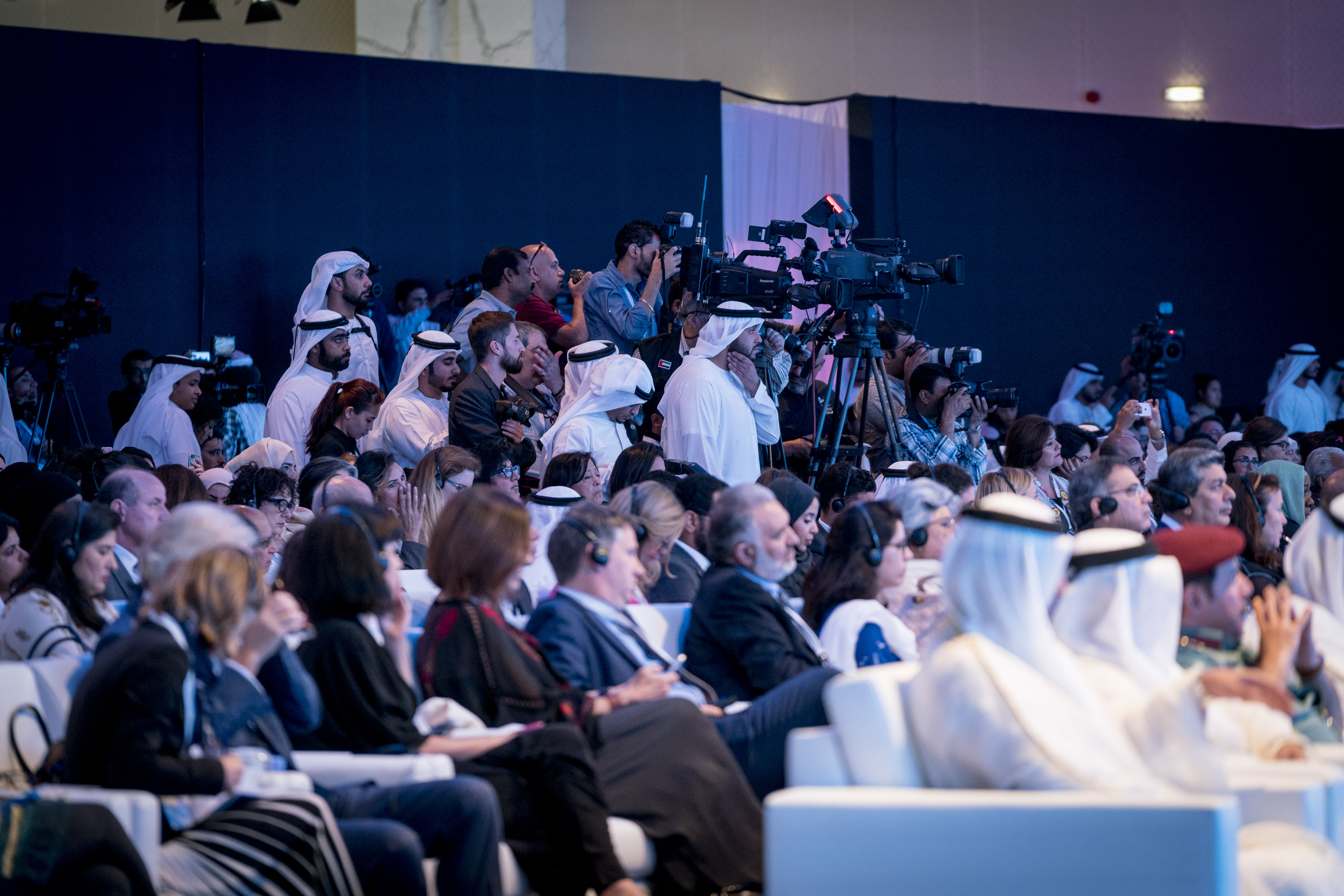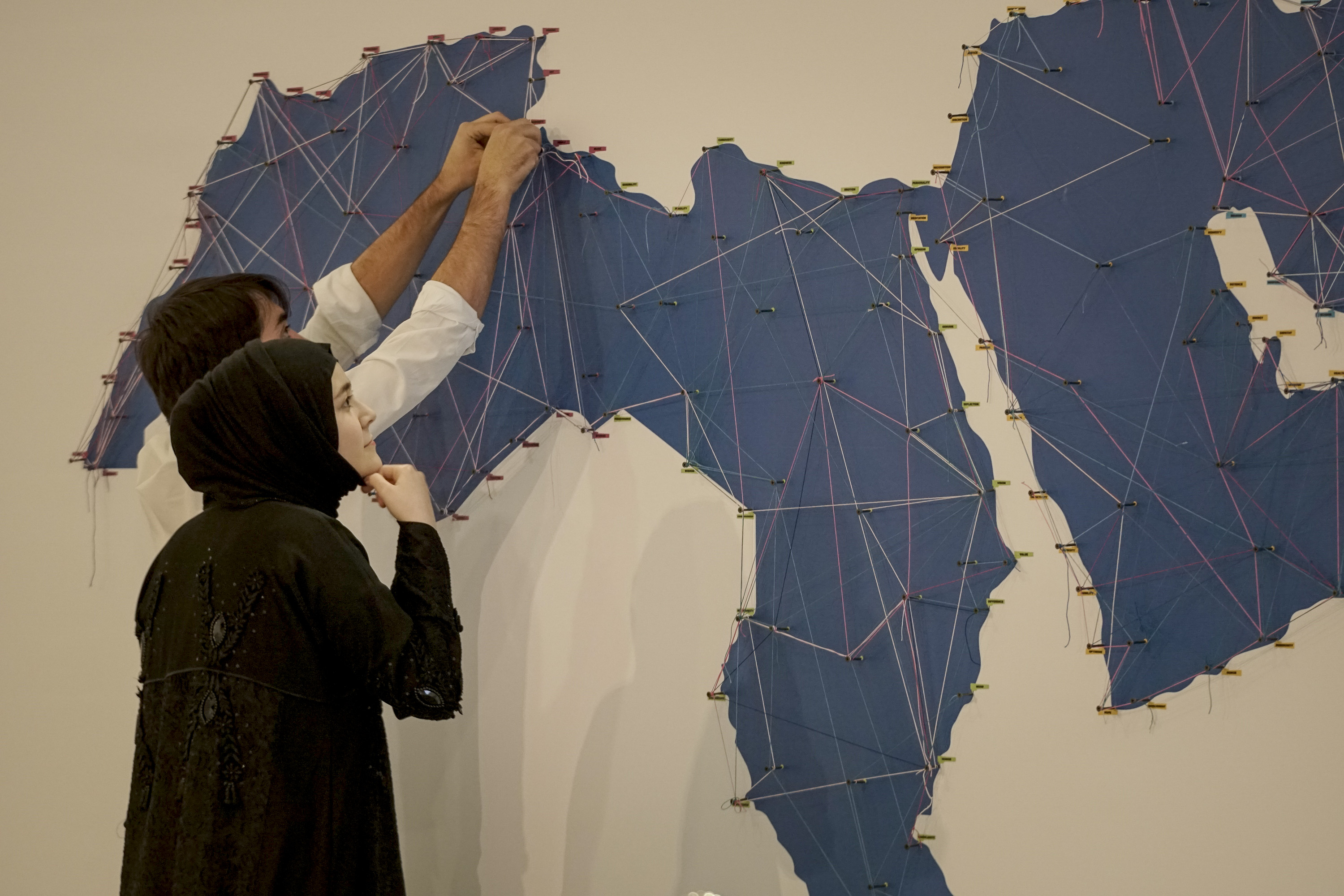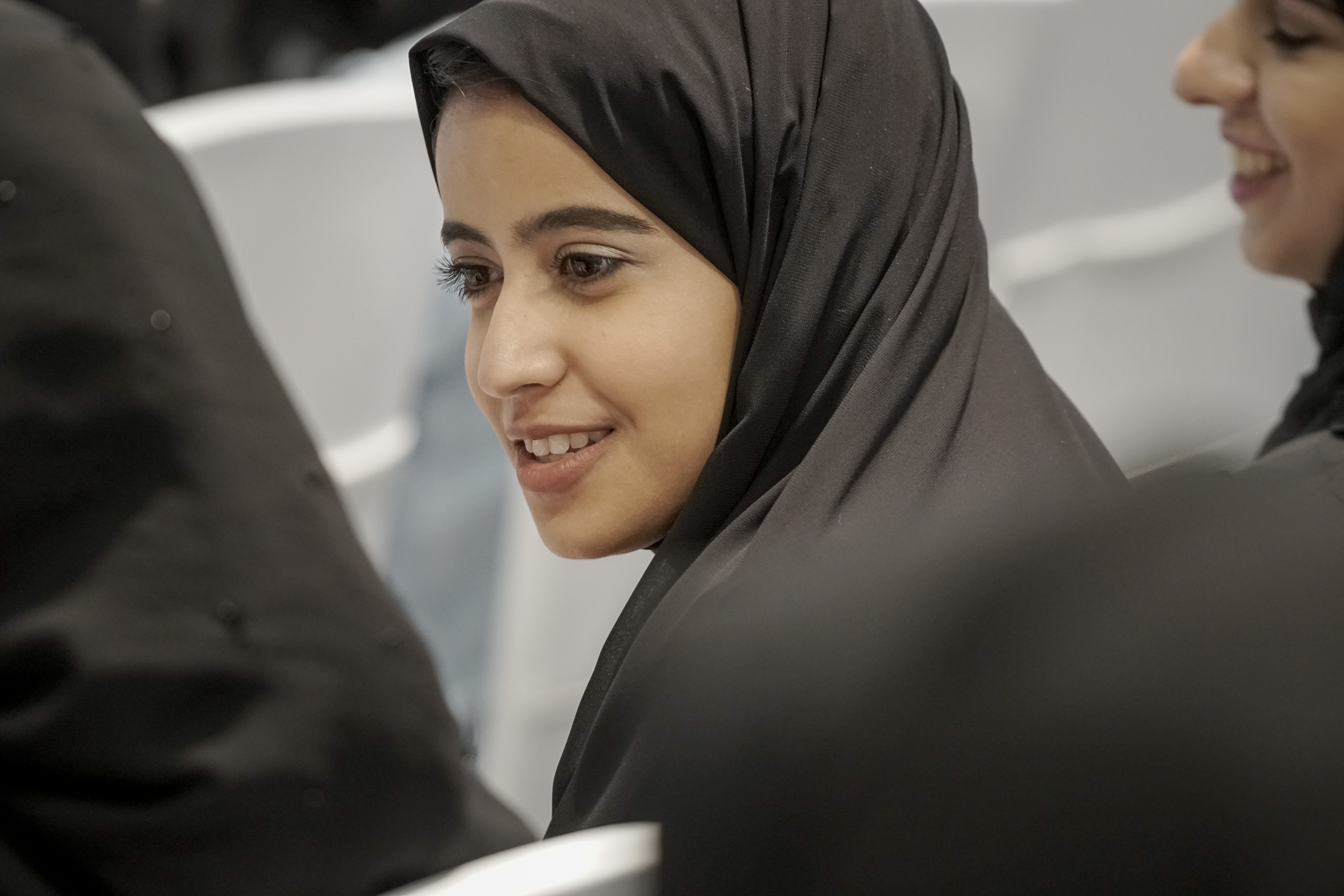New commitments to gender equality in the Arab Region
Adoption of Sharjah Declaration on the Rights and Empowerment of Women and GirlsDate:

In a new milestone for the women of the Arab Region, “Investing in the Future- Building the Resilience of Women and Girls in the Arab Region” conference closed with the adoption of the “Sharjah Declaration for the Rights and Empowerment of Women and Girls”- a comprehensive statement of commitments to achieve gender equality.
The two-day conference brought together government officials and representatives of international and regional civil society organizations who met in Sharjah of the United Arab Emirates (UAE). The conference was organized by UN Women in partnership with the Big Heart Foundation and Namaa for Women Advancement Establishment under the patronage of His Highness Sheikh Sultan Bin Mohamed Al Qasimi, the Ruler of Sharjah.
Roundtables, workshops and plenaries tackled a diverse multitude of gender equality issues including streamlining the gender perspective in humanitarian work, actively engaging women in peace and security processes in the region, women’s rights in Islam and the need to broaden collaboration with faith-based organizations, men and boys as champions of gender equality and the value of women’s economic participation. Youth workshops brought scores of young people to speak of their concerns and aspirations and learn more about gender equality initiatives in the Arab Region.

“Women are not a charity case; they are solutions makers. The world can’t end poverty without women, impossible,” said Phumzile Mlambo-Ngcuka, UN Women Executive Director, to a group of young women in a one of UN Women’s workshops. “Women have a contribution to be made, but it is the opportunity that is being denied,” she added.
Speaking about what they need from their male family members to pursue bigger dreams and take on more positive roles in their society, a group of female Emirati students took turns sending messages to their male family members.

“Boys count on women completely in the house. ‘Serve me, cook for me, do this for me’, they say to us. We need them to be more supportive so we can study and see the world like them,” one girl in the audience said.
Another young participant also pointed out the importance of sharing household responsibilities for gender equality.
“When men help women with household chores, this is justice. Justice in the family will eventually lead to justice in the society,” she said.
Youth also spoke of women’s role in politics and particularly in peacebuilding- a strong theme within many discussions in the conference. As conflicts rip through the region in Syria, Yemen, Libya and Iraq, the issues of humanitarian assistance, counterterrorism and peacebuilding dominated several sessions and side discussions. This concern was clearly reflected in the closing declaration which clearly recognizes women as “agents of change and leaders in reconciliation, peacebuilding and countering violent extremism” and acknowledges the need to include and target women and girls in “planning for economic recovery and resilience.”
Violence against women and girls was another dominating topic. During the final day of the conference, UN Women and UNFPA regional offices jointly launched the Essential Services Package for Women and Girls Subject to Violence for the first time in the Arab Region. The package has been developed as part of a four-year joint global programme between UNFPA and UN Women, in partnership with WHO, UNDP and UNODC with the goal of providing female survivors of violence better access to a coordinated set of essential and quality services that include cooperation in the fields of health, police, justice and social services so that the survivor receives protection, health services, legal counselling and psycho-social support.
“These topics are at the heart of the Sustainable Development Goals and of achieving a true Planet 50-50 by 2030,” said Ms. Mlambo-Ngcuka in her closing speech in reference to the array of subjects tackled by the conference. “The conference, and the issues that it tackled, is a testimony to the fact that UN Women is not only here, but we are here together with all of the partners who have made this conference possible,” she added.
She also celebrated the opening of UN Women’s first liaison office in the Gulf in Abu Dhabi last Tuesday calling the UAE a “new home” for UN Women in the region.